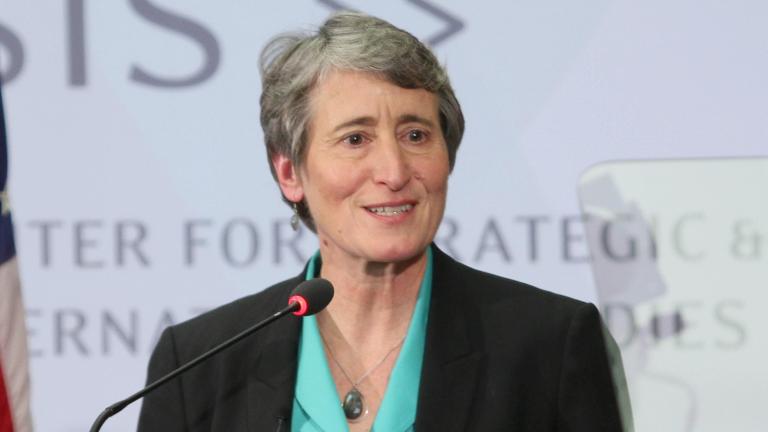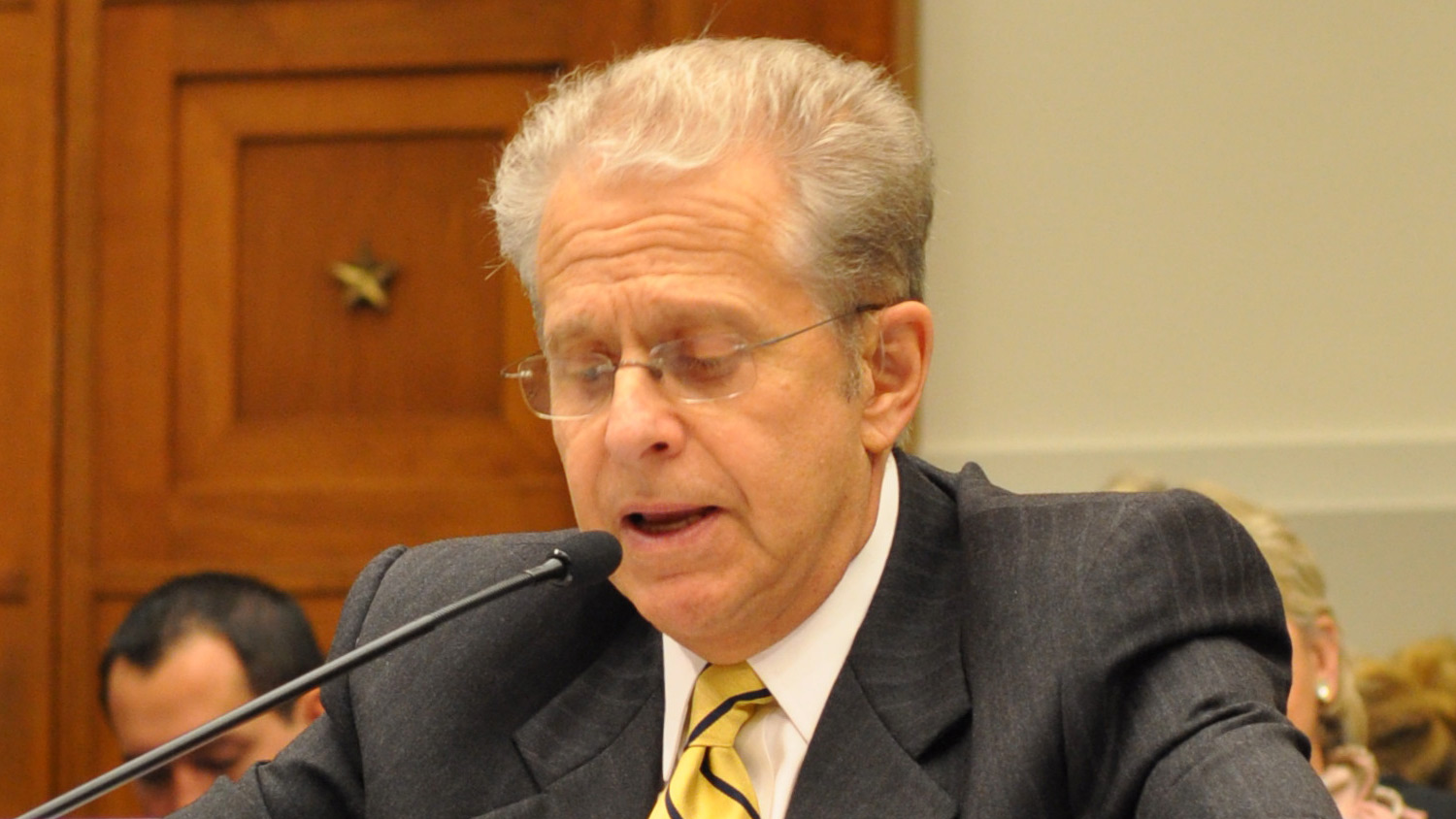I don’t know how much Peabody Coal is paying Harvard Law professor Laurence Tribe to serve as its mouthpiece, but it can’t possibly be enough.
Tribe is a respected constitutional scholar, a lawyer who has argued dozens of times before the Supreme Court, a long-time Obama mentor and advisor, and a liberal in good standing.
So it is absolutely mystifying to find him advocating, on behalf of a rapacious corporation that recently screwed workers out of pensions and healthcare benefits, against long-overdue EPA regulations on carbon emissions. It’s especially remarkable that he’s doing so with arguments that are transparently terrible.
As I mentioned before, Tribe submitted comments to EPA on the carbon rule that sound like an angry blogger’s rant. Now he’s just testified to Congress on Peabody’s behalf, making many of the same faulty arguments, going so far as to accuse Obama of “burning the Constitution.” So much for the mentor relationship. And the respect.
—
Let’s start with Tribe’s first and most serious accusation: “EPA’s Proposal Violates Principles Of Federalism By Commandeering State Governments In Violation Of The Tenth Amendment.” The 10th Amendment says that the federal government may not “commandeer” the regulatory powers of state governments — may not, in other words, force states to regulate to achieve federal goals. By putting a metaphorical gun to the states’ heads, threatening to impose a federal plan if states don’t develop their own, the feds are effectively forcing states to regulate, thus commandeering — or so Tribe says.
Is there anything to this argument? Ha ha, no. Congress could easily have given EPA authority to directly regulate all air pollutants (as it does with hazardous air pollutants). Instead, at the urging of conservatives, it gave states flexibility — it allowed states a chance to make their own state implementation plans (SIPs) before the feds stepped in with a federal implementation plan (FIP). But EPA can not and does not force states to make plans; it just gives them the chance. So there’s no commandeering.
All this has been established by decades of lawmaking and precedent. Here’s a respected constitutional scholar arguing that, insofar as the feds merely give states the opportunity to develop a plan, but offer a federal plan for states that don’t want to, “nothing about what the court did poses constitutional difficulty.”
Here he is a bit later at the same event arguing, clear as day, that “the existence of a backup federal plan takes it outside the commandeering world.”
That constitutional scholar is one Laurence Tribe, circa 2012, before Peabody’s checks started landing in his bank account.
So what explains Tribe’s flip-flop? Well, he addresses it here, in response to a question from a lawmaker:
He’s arguing that because the states don’t know what’s in the FIP — it might be economy-killing socialism! — they are in effect coerced to make their own plans.
That is … word salad. The Clean Air Act does not require that a FIP be written in advance of states developing (or not) their own SIPs. One time before, under George W. Bush, for the Clean Air Interstate Rule, EPA issued a FIP in advance, but that’s a favor to the states, not something required by statute. The basic FIP/SIP model has been used in the National Ambient Air Quality Standard (NAAQS) program for 45 years; never before has someone made this novel “we don’t know what’s in the FIP so this is commandeering” argument. Also, “Russian roulette,” really? EPA might shoot states in the head? Yeesh.
Anyway, EPA is planning on issuing a model FIP for carbon standards this summer, in advance of states developing (or not) SIPs, so states will know in advance what’s in it. The whole argument is just vaporware.
(By the way, the argument I’m making here was also made directly to Congress by NYU law professor Richard Revesz, whose testimony you can read here.)
—
This isn’t the first time the court has heard a question like this, about the expanse of EPA’s powers. In 2000, in Whitman vs. American Trucking Associations, plaintiffs argued that EPA’s NAAQS program for ozone is unconstitutional because it amounts to Congress ceding legislative authority to EPA. A respected constitutional scholar submitted a brief in that case, on behalf of General Electric, arguing that the case perfectly demonstrated “the risks that Congress will abdicate responsibility over critical policy judgments and that politically unaccountable agencies will seize the power to pursue their own policy agendas.”
Sounds serious! But it wasn’t, really, and the Supreme Court ruled against it 9-0, with hyperconservative Justice Antonin Scalia writing the ruling.
Can you guess who the respected constitutional scholar was? Yes, Laurence Tribe, whose analysis of EPA’s authority seems suspiciously contingent on which large corporation has hired him.
Incidentally, in that case Tribe also joined a brief arguing that regulation of ozone would impose “massive costs” for “speculative” benefits and thus that it was “unthinkable” Congress had authorized EPA to do it. Those familiar with recent history will recall that the costs of regulating ozone turned out to be relatively small and the benefits both large and tangible. (Unless children with asthma are speculative.)
—
Why is Tribe so exercised about this particular EPA program? It has to do with the issue I identified here, namely that compliance will involve a lot of action that takes place “beyond the fenceline” of power plants themselves — states can comply with renewable energy and energy efficiency, for example.
Conservatives have interpreted this in their usual judicious fashion, saying that it gives EPA control over our entire lives and probably our precious bodily fluids as well. Tribe follows them into hysteria:
This sort of “plant to plug” regulation would permit the EPA to regulate any use of electricity as long as it affects CO2 emissions – a standard that would reach virtually every use of electricity in the United States. There is no limiting principle. The Affordable Care Act may not compel health insurance consumers to eat or buy broccoli, but EPA seeks to interpret the Clean Air Act to allow it to regulate every watt used in growing broccoli and moving it to the market – as well as every watt used for any other activity within a State.
Every watt, I tell you! Derp!
This is also nonsense. EPA cannot force states to use renewable energy or energy efficiency. Nor does it control all the watts. Or any of the watts, really. It has no such authority.
What EPA can do is take the potential for renewable energy and energy efficiency into account when determining a state’s carbon target. And it can, when developing a FIP for a state, establish a trading program that allows power plants to buy renewable energy and efficiency credits as a form of compliance.
But a) buying credits is something power plants do, not something beyond the fenceline, and b) EPA has no authority to force any power plant to buy credits. States and power plants can comply however they want to comply; there is enormous flexibility. EPA only measures power plant carbon emissions and its only coercive power is to require power plants to hit carbon goals or pay a penalty. It has no authority over broccoli.
(Incidentally, EPA’s Acid Rain Program also allows power plants to comply with renewable energy and efficiency credits. Thus far the constitutional republic has survived.)
—
One other thing. In 2011, there were a couple of lawsuits in which people sued power plants to try to recover climate damages under nuisance law. Tribe wrote an op-ed on the suits. Though he described himself as “someone who is neither a doubter when it comes to humanity’s role in exacerbating global warming, nor a shrinking violet when it comes to the judicial role in extending human rights to new frontiers,” he nonetheless opposed the suits and urged the Supreme Court to reject them.
Why? Because courts are the wrong venue:
Congress, through the Clean Air Act and other measures, has empowered the Environmental Protection Agency to regulate greenhouse gases, and that agency has begun to do so, prodded by a Supreme Court ruling in favor of Massachusetts when the state sued the EPA to compel it to take up the problem. The courts should reject the political and administrative roles that would be thrust upon them by litigants dissatisfied with Congress’s decision to entrust the EPA with this challenging mission …
So: don’t sue, because EPA is on it.
But now, testifying to Congress, Tribe says EPA isn’t quite the right venue either — indeed, its plan is unconstitutional. (It, er, burns the constitution.)
So WTF is the right way to tackle climate change?
I understand the frustration of those who insist that the Government must take action to address climate change. In fact, there are plenty of alternative policies that the Federal Government could pursue within the bounds of law, and some that it is already pursuing, which would violate neither the Clean Air Act nor the Constitution. For example, the Federal Government has always supported new energy technologies, including cleaner ways of using existing fuels. Today, greenhouse gas emissions from state-of-the-art coal plants are materially (25%) lower than those of traditional power plants, due to improved boilers, increased efficiencies, and other innovations. The United States could also support carbon capture and storage technologies. An “all of the above” energy policy can support all forms of domestic energy production that will minimize carbon emissions, protect consumers and American jobs, and ensure that the U.S. remains independent from unreliable foreign sources of energy.
Got that? Don’t sue climate polluters. Don’t regulate climate pollution. Just subsidize “clean coal.”
This is Tribe parroting Peabody propaganda, at the expense of the climate and, more directly, at the expense of the most significant second-term accomplishment of his student and friend Barack Obama. Hard to imagine how much dirty money it takes to wash all that out.
—
UPDATE: This response to Tribe from colleagues at Harvard Law is also worth reading. “Were Professor Tribe’s name not attached to [these arguments], no one would take them seriously.”




